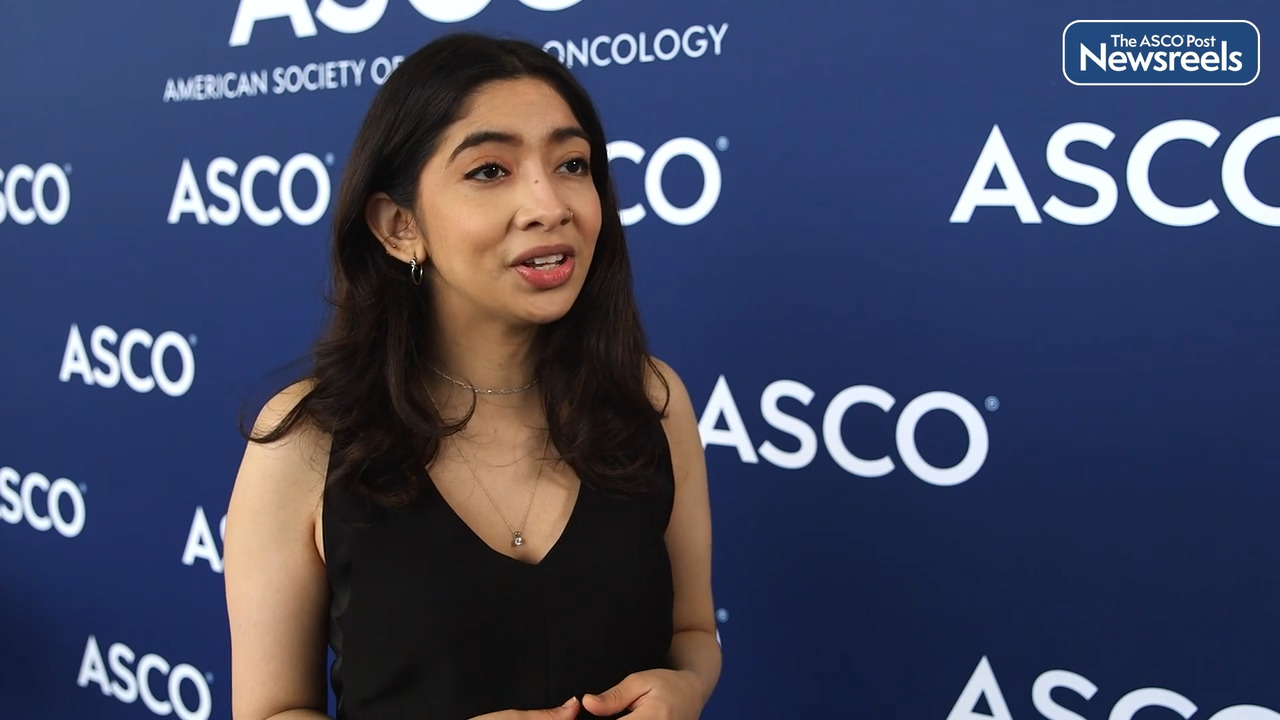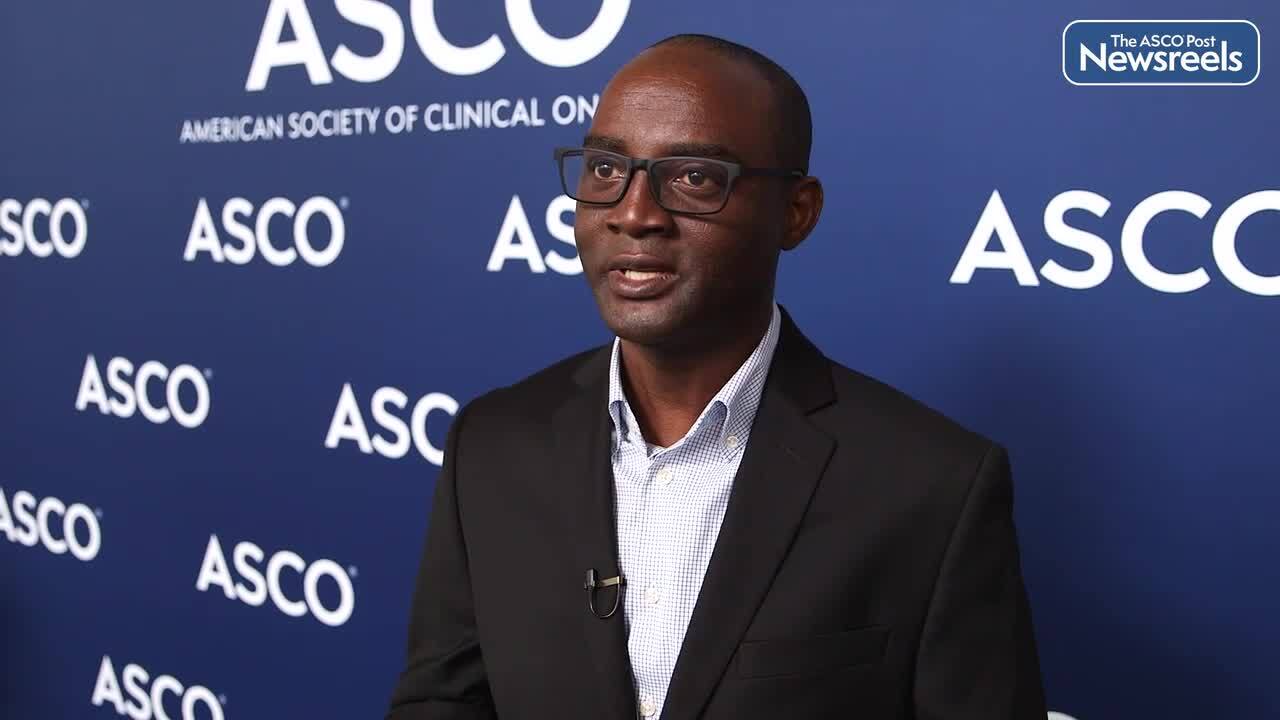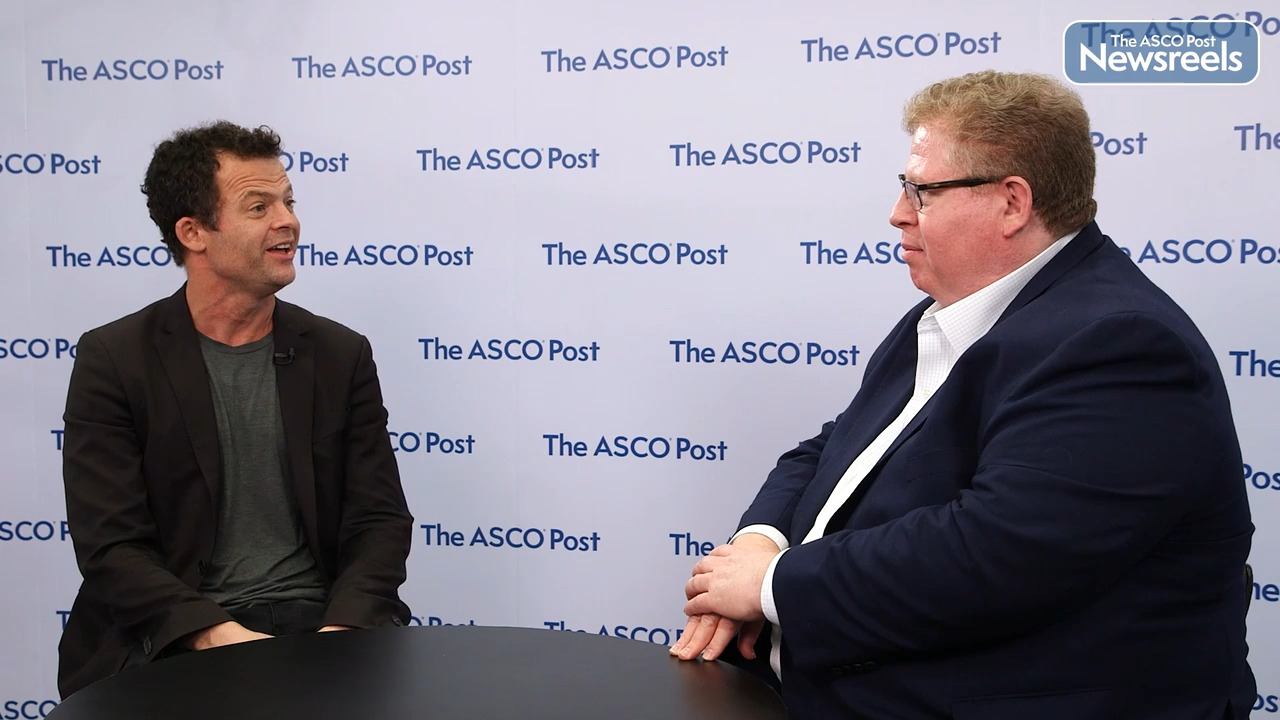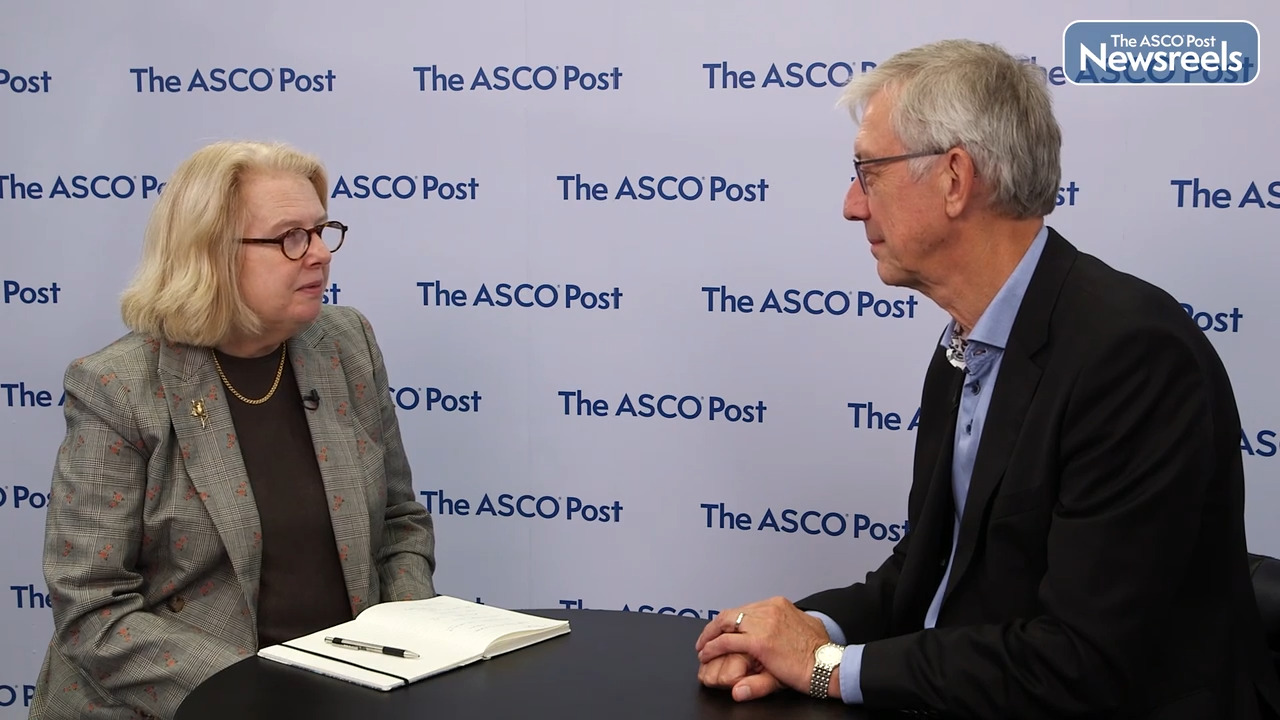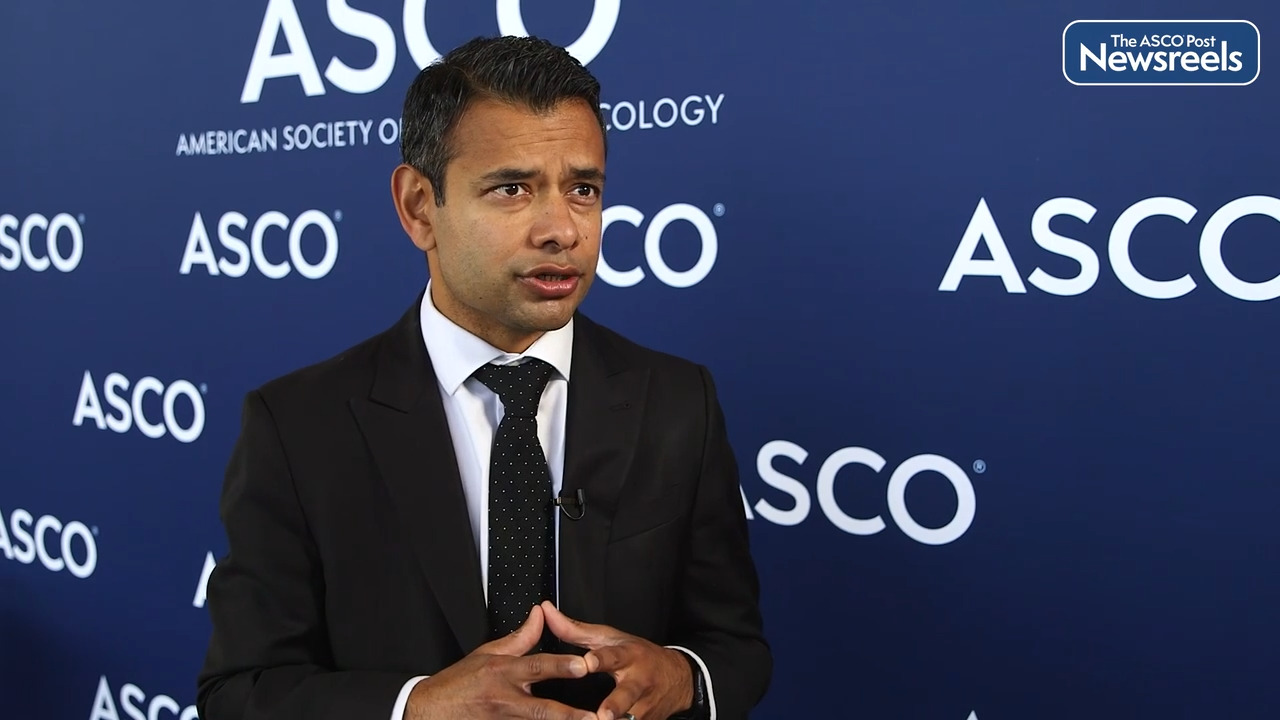Transcript
Disclaimer: This video transcript has not been proofread or edited and may contain errors.
Hodgkin lymphoma is a disease that commonly affects younger patients, but there is also a peak of patients in the older age group that have this disease. And it's proven to be one of the success stories in treatment of patients with cancer. Many patients with Hodgkin lymphoma have a very successful outcome with combination chemotherapy. ABVD chemotherapy has been the standard for decades and has actually been quite difficult to beat, particularly when one looks at overall survival. In the past, strategies have looked at ways to decrease toxicity by leaving out drugs that can cause lung toxicity, such as bleomycin. Other strategies have looked at intensifying therapy, treatments such as escalated BEACOPP. And these have shown that it may improve outcomes, particularly as far as progression-free survival is concerned, but none of these have really been able to impact the overall survival of patients. And the feeling has generally been that if you can salvage people with subsequent treatments, using high dose therapy and stem cell transplantation, you can actually result in a similar outcome, as far as overall survival is concerned. So, echelon one trial, the trial that was reported at this meeting, compared the use of a new targeted novel agent, as many people are aware, Brentuximab vedotin, it's a CD 30 antibody drug conjugate, in combination with AVD chemotherapy, against that standard, the ABVD chemotherapy. And just over 1300 patients were randomized in a one to one fashion. And the outcomes of those two cohorts of patients, treated for six cycles of therapy, were compared over time. Now, this data has been reported in a number of different time points. Initially, what was called the modified progression-free survival was reported, which showed an advantage to the Brentuximab AVD arm. Subsequently, regular progression-free survival showed a significant improvement, when compared to the standard. But the data presented now showed a 41% decrease in the likelihood of death from Hodgkin lymphoma, with the treatment with Brentuximab vedotin plus AVD chemotherapy. So, I think, quite frankly, this is a significant advance and moving the field forward. A few things that were very interesting about the study, when we actually looked at causes of death, there were more people passing away from Hodgkin lymphoma in the ABVD arm and fewer in the Brentuximab vedotin plus AVD arm. Now obviously, that would be expected, but there were fewer second malignancies, interestingly, in the Brentuximab vedotin AVD chemotherapy. And of particular note was, there were fewer other lymphomas that developed, suggesting that the Brentuximab vedotin may actually target a stem cell, or an earlier precursor cell, preventing those second malignancies. Additional data that looked at other toxicities that one is concerned about; Pregnancies, persistence of peripheral neuropathy, really were quite favorable showing that Brentuximab vedotin AVD chemotherapy is well tolerated and can be administered, and some of the toxicity seen actually subsequently resolve. So, when you take that all together and you say, "What does this data really show?" I think it shows that Brentuximab vedotin AVD chemotherapy, in advanced stage classical Hodgkin lymphoma patients, is a therapy with a better outcome than ABVD chemotherapy, and really now is the preferred frontline treatment for patients with this disease. I think the other thing that really is notable about this, we always believe that you could always turn around and salvage people subsequently with a subsequent strategy and treatment. This would suggest that what you do the first time actually impacts people overall, because when additional subsequent therapy was compared between the two arms, there was no real significant difference. So, taken together, that data would really say that the use of Brentuximab vedotin in combination with chemotherapy improves the outcomes of patients overall, and is now the preferred treatment for advanced stage patients.
